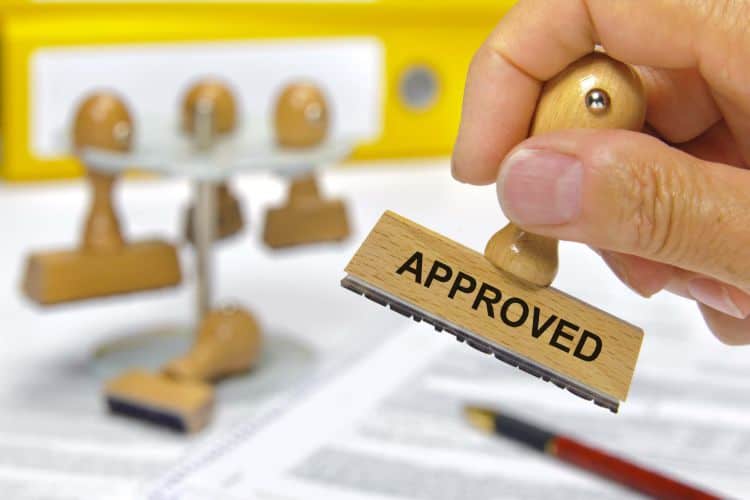 Small business owners like yourself know the importance of creating a solid brand identity and reputation in the market. Your trademark is one of the most valuable parts of your business since it lets people know which products and services are yours. However, this can also give other people an opportunity to infringe on it. Meaning they can steal your brand without permission. This can be very detrimental to your business and even cause confusion for customers who are trying to find out where they can get your products or services. That’s why protecting your trademark is crucial and should be taken seriously if violated.
Small business owners like yourself know the importance of creating a solid brand identity and reputation in the market. Your trademark is one of the most valuable parts of your business since it lets people know which products and services are yours. However, this can also give other people an opportunity to infringe on it. Meaning they can steal your brand without permission. This can be very detrimental to your business and even cause confusion for customers who are trying to find out where they can get your products or services. That’s why protecting your trademark is crucial and should be taken seriously if violated.
Why Protecting Your Business From Trademark Infringement Matters?
Use of a trademark that is the same or confusingly similar to another registered brand without authorization in connection with products or services that are identical or similar to the ones for which the trademark is registered constitutes trademark infringement. Trademark infringement can have serious consequences for your business, such as:
- Confusion among consumers: If another business uses your trademark or one that’s similar, consumers may be tricked into thinking that they’re buying from you or that you’re working together. This can damage your reputation, customer loyalty, and any good faith previously built.
- Loss of sales and profits: If any other business uses your trademark, customers might decide to go elsewhere for their products or services. You won’t just lose sales and profit, but also potential customers who don’t want any association with the infringing business.
- Dilution of your brand value: Anyone who uses your trademark or one that’s similar, it’ll lose its distinctiveness and uniqueness. Your brand will go from recognizable and memorable to being tossed into the sea of mundane things. This goes hand in hand with attracting and keeping customers.
- Legal liability: You might end up having to take responsibility for their actions too if your trademark is copied. Defects, damages, injuries caused by their products or services would all be thrown on top of you. You may even face legal action if they claim you’re infringing on their trademark as well.
How to Protect Your Small Business From Trademark Infringement?
There are several steps you can take to protect your small business from trademark infringement. Here are a few that you should always remember:
- Conduct a thorough trademark search: Before you choose a name, logo, slogan, or domain name for your business make sure that it’s not registered by another business in the same or related industry. It’s also important to make sure that it’s not being used by another business.
- Register your trademark: Register your trademark: By registering your trademark with the Australian Trade Marks Office (ATMO), you will secure exclusive rights to use it in Australia for the specified goods or services. Registration makes it easier to enforce your rights against infringers and prevent others from registering similar trademarks. You can apply online through IP Australia which is the government agency responsible for administering intellectual property rights in Australia.
- Use the ® symbol: Once you get your trademark registered, you should always use this symbol next to it. This indicates that your mark is registered and gives you legal protection. Using this symbol can deter potential infringers and alert consumers to your ownership of the trademark.
- Monitor the market: Regularly monitor the market for any unauthorized use of your trademark or similar ones by other businesses. Use online tools such as Google Alerts to receive notifications when it’s mentioned on the web, or hire a professional watch service that scans various sources and platforms.
- Take action against infringers: If infringement does occur, take prompt and appropriate action to stop it and prevent further damage. Start by sending a cease and desist letter to who’s infringing on your mark. Demand they stop using it and remove any materials like ads or signs with it on there. If they refuse you can file a lawsuit against them seeking remedies such as injunctions, damages, costs, and an account of profits. You should once consider Intellectual property lawyers in sydney for legal advice.
How to Deal with Trademark Infringement Claims and Lawsuits
But if you are accused of infringing on someone’s trademark, you’ll have to move quickly and carefully. Especially if you want to avoid legal consequences. You should:
- Review the claim: If you get a cease and desist letter from another business claiming that you’re using their trademark, make sure to check it out carefully. Look at whether their trademark is registered or not, whether it is identical or similar to yours, whether it covers the same or related goods or services, and whether it’s likely that this will confuse consumers.
- Seek legal advice: When it comes down to dealing with lawsuits and claims for trademark infringement more often than not this can be complex. Especially if you don’t know anything about the law and how things work. So seek advice from an Lawyers who specialize in trademarks and has enough experience under their belt. They’ll be able to help you understand your rights and obligations, review your options, and represent you during negotiations or litigation.
- Respond to the claim: Depending on the situation and what your attorney says there are a few different ways that you may respond. You may deny the infringement and assert your right to use your own trademark, challenge how valid or enforceable their trademark is, propose a settlement or license agreement, or maybe just agree to stop using your own trademark that violated theirs. Remember whatever route you take make sure you respond within the limit provided by their letter otherwise, there might be default judgment against you.
Conclusion
Trademark infringement is no joke when it comes to small businesses like yours since they can compromise brand identity, reputation, and profitability. That being said, be proactive by protecting yourself from violations with the measures we talked about above but also consult with a professional who understands trademarks inside out like a Small Business Lawyers in Sydney who will be able to assist with search, registration monitoring enforcement as well as defense.
FAQs
How do I protect myself from trademark infringement?
To keep safe from copyright infringement start off with a thorough search to make sure the name isn’t already in use. Then go ahead and register it with the government for protection. Keep an eye on the market to make sure no one is using it either and always renew your registration.
Why is trademark important in small business?
Trademarks are pivotal for small businesses because they make you stand out amongst the competition. They give legal protection against others who want to imitate, which is vital for integrity. Having a unique logo can also provide a competitive advantage by preventing competitors from using similar names or logos, this aids in building a robust brand identity.
Is trademark important for a startup?
Yes, trademarks are essential for startups as well since they help establish a strong and unique identity. Which is crucial when starting up in such a competitive market. Legal protection is provided along with representing goodwill and brand value, both of these help build trust with customers and stakeholders as well. Trademarks play a large role in getting repeat customers.
What is the cost of trademark for small enterprises?
Registering a trademark for small businesses in Australia is usually costly. The total amount hinges on the number of goods or services the mark will cover, and the way it’s filed. In simple terms, a straight forward registration without any issues would usually fall between $1,500 to $2,000. But if we’re going into specifics then the cost per class starts at $250 for a standard application.


